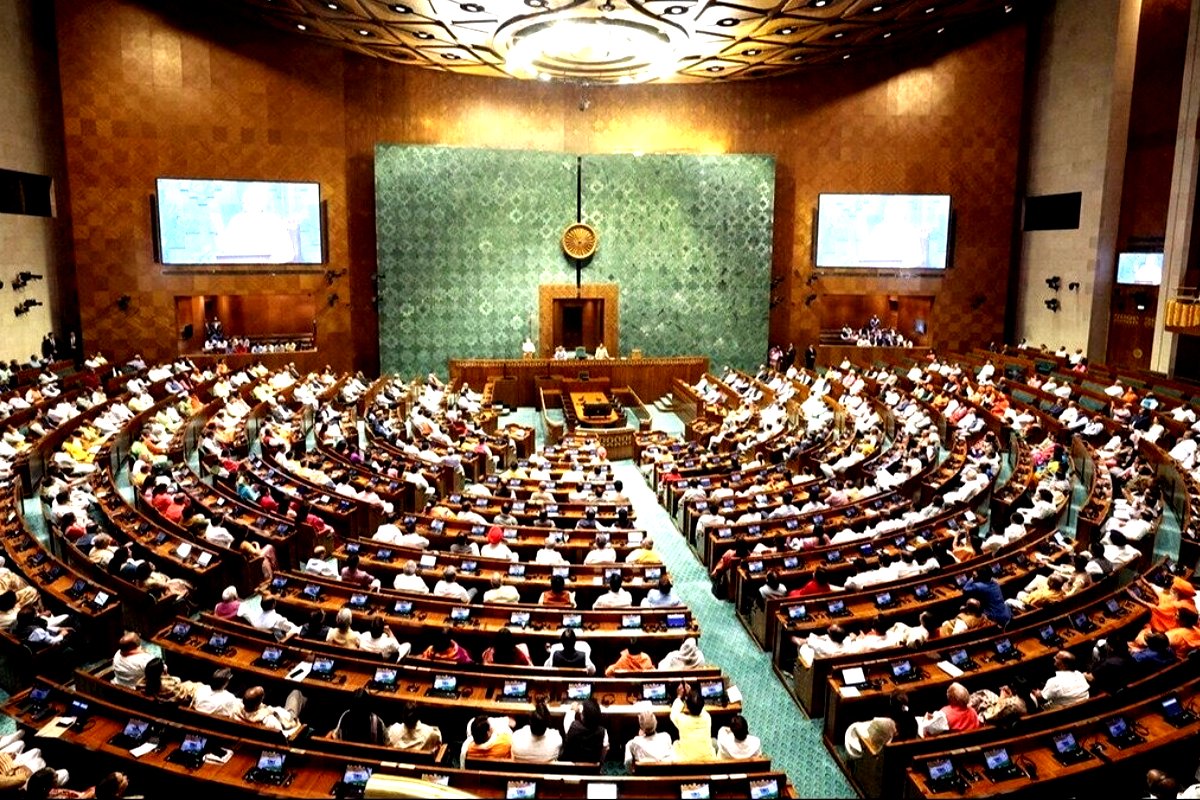

NEW DELHI: The first session of the 18th Lok Sabha commenced today, marking the beginning of a new legislative term. The newly elected Members of Parliament (MPs) began taking their oaths, a constitutionally mandated step before they could participate in House proceedings.
Prime Minister Narendra Modi was among the first to take the oath, shaking hands with Speaker pro tem Bhartruhari Mahtab, who has been appointed by President Droupadi Murmu under Article 95(1) of the Constitution. Mahtab, a seven-time MP from Cuttack, Odisha, will preside over the House until a new Speaker is elected.
MPs must take their oaths to officially occupy their seats and participate in debates and voting. The oath text, specified in the Constitution’s third schedule, requires MPs to affirm their allegiance to the Constitution of India, promising to uphold its sovereignty and integrity.
The session was not without controversy. As Union Education Minister Dharmendra Pradhan took his oath, Opposition leaders protested, chanting “NEET” slogans. The protests were in response to alleged irregularities in the NEET-UG medical exam and the postponement of NEET-PG, highlighting ongoing tensions between the government and the opposition.
Several prominent leaders took their oaths today, including Union Ministers Amit Shah, Rajnath Singh, Nitin Gadkari, and Anupriya Patel. Malayalam actor and BJP leader Suresh Gopi, representing Kerala’s Thrissur constituency, also took his oath, having won his seat with a significant margin.
Outside the Parliament, leaders of the Opposition INDIA bloc, including Congress President Mallikarjun Kharge, Sonia Gandhi, and Samajwadi Party Chief Akhilesh Yadav, staged a protest holding copies of the Constitution in opposition to the BJP-led government.
A notable issue addressed was the participation of MPs who are currently incarcerated. The Constitution allows MPs in jail to take their oaths to avoid vacating their seats due to prolonged absence. This precedent was set in 2019 when Atul Kumar Singh, an MP from Ghosi, Uttar Pradesh, was permitted by the court to take his oath in Parliament despite facing serious criminal charges.
The process and significance of the parliamentary oath have evolved. Initially, the draft Constitution did not include references to God in the oaths. However, amendments introduced during the Constituent Assembly debates allowed for such references to accommodate personal beliefs. The last significant change to the oath came in 1963, adding the pledge to uphold India’s sovereignty and integrity following recommendations from the National Integration Council.
As the 18th Lok Sabha session progresses, the newly sworn-in MPs will begin their legislative duties amidst a politically charged atmosphere. The oath-taking ceremony, though a routine constitutional process, underscored the ongoing political dynamics and the issues at the forefront of national discourse.
